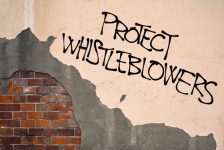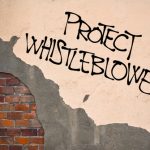New Protections for Company Whistleblowers

The Turnbull government has introduced a bill designed to protect whistleblowers within the private sector, but those who expose crime and corruption within government will continue to face criminal prosecution.
Those in favour of broad whistleblower protections have called the bill a move in the right direction, while at the same time recognising that it may be more about combating tax fraud and filling state coffers than combating corporate misconduct.
The law
The Treasury Laws Amendment (Whistleblowers) Bill 2017 seeks to amend the Corporations Act and Taxation Administration Act.
If passed, it would introduce broader protections for whistleblowers in the private sector, including the statutory protections against whistleblower victimisation.
Whistleblower policies
The changes would require large corporations to formulate written whistleblower policies detailing the statutory protections available to employees who disclose dishonest or illegal conduct within the company.
These policies would require information regarding:
- persons to whom disclosures can be made;
- how whistleblowers will be supported; and
- how disclosures will be investigated.
The policy would need to be created and disseminated by 1 January 2019. Failure to comply would attract a maximum fine of $12,600.
Protection from liability
The new laws would create protection from both civil and criminal liability to those who make disclosures to ASIC, APRA, the AFP or senior members of the company.
And there would no longer be a requirement for whistleblowers to disclose their identity in order to receive the protections.
Immediate disclosures
A new concept of ‘emergency disclosures’ would be introduced, permitting whistleblowers to make immediate disclosures to a federal or state parliamentarian or journalist in circumstances where the person has reasonable grounds to believe that “there is an imminent risk of serious harm or danger to public health or safety, or to the financial system”.
The meaning of ‘journalist’ would include newspapers, magazines, radio and television broadcasters, and various commercial electronic services. It would not extend to disclosures on social media or to ‘self-defined journalists’.
The case of Jeff Morris
Commentators suggest that this new protection would have been invaluable to people like Jeff Morris, who exposed widespread forgery and fraud at the Commonwealth Bank. Mr Morris turned to the media after waiting 18 months for the corporate regulator to launch an investigation, during which customers continued to be ripped off.
Mr Morris has paid an enormous price for his actions, including losing his job, receiving death threats and experiencing acute anxiety and stress.
Whistleblower victimisation
The new law would clarify ‘whistleblower victimisation’ as including the following courses of conduct:
- dismissing an employee who has engaged in whistleblowing;
- damaging, injuring, altering or discriminating against an employee’s position or status; or
- damaging an employee’s property, reputation, business or financial position.
A person who has been the subject of the above would be entitled to compensation.
The bill also prohibits the disclosure of a whistleblower’s identity, including to a court or tribunal, unless it is necessary to do so.
The case of Sally Dow
The proposal could see that whistlblowers like Sally McDow would be protected for doing the right thing.
Ms McDow was a senior compliance manager at Origin Energy. She lost her job shortly after using the company’s internal whistleblower procedures to expose significant and dangerous breaches at gas and oilfields, spills and explosions, a deliberate cover-up by management and potential breaches of the Corporations Act.
McDow was bullied and intimidated as a result of her disclosures. In a statement of claim, she alleged that management told staff she “made stuff up”, “is going to make us lose our jobs”, “is having a mental breakdown and calling it stress leave” and “is a faker and wants to hurt us”.
Need for change
Although some private sector protections have been in place since 2004, they have proven to be ineffective in guarding against the victimisation of whistleblowers.
It is hoped the new laws, if passed, will better protect those who expose crime and corruption within companies, while acting as a deterrent against those who might otherwise persecute those who do the right thing.
It is hoped similar protections might be passed to protect those who expose misconduct in government.







